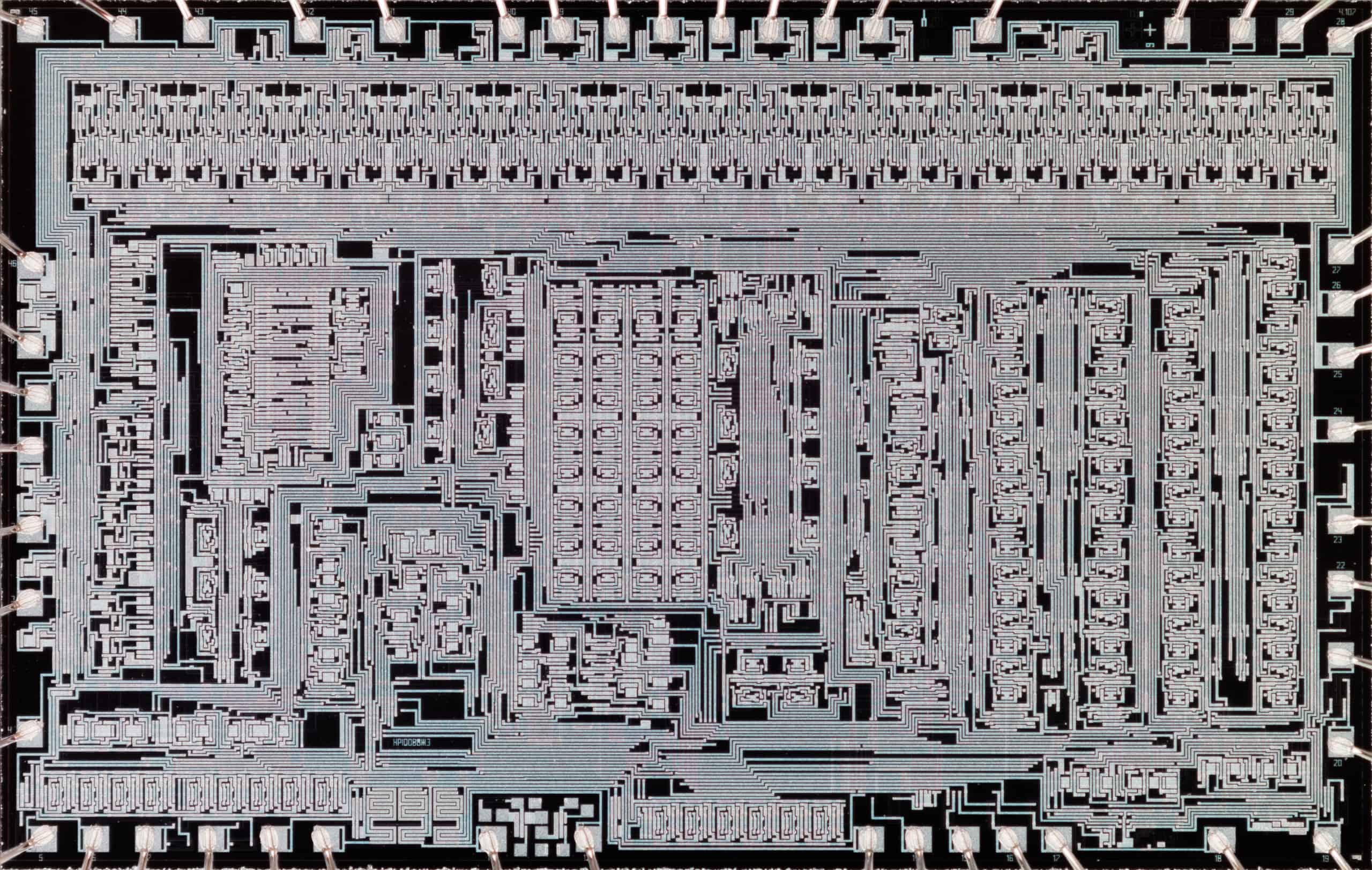
Credit: oldTor, Creative Commons
For much of the last century, America has been not just a superpower but the world’s pre-eminent technological power. It has led the way in the development of nuclear weapons, satellites and genomics. It has ventured deep into space and fueled the computing and internet revolutions. Now, however, a growing number of Americans believe that China is gaining on the U.S. through intellectual property theft as well as hard work and determination. Bolstered by its economic gains, China has developed capabilities in space, artificial intelligence and cyber warfare. Today, no contest appears more significant than the technological one, partly because the two countries see it as a competition between an authoritarian system and one that is liberal and democratic-minded. In the following primer, we explain what the U.S. government thinks about China’s position in high tech fields and how it is attempting to compete with China.
What is China doing to get ahead in emerging technologies?
China has a range of policies designed to accelerate the country’s advance in emerging technologies and develop self-sufficiency in critical areas. Its industrial plans, such as Made in China 2025, have called for hundreds of billions of dollars to flow to industries such as semiconductor manufacturing. The Chinese government also partners with or awards contracts to startups focused on emerging technology, such as the artificial intelligence firm SenseTime, as well as telecom behemoths like Huawei and ZTE. The government and state-backed groups have often been accused of stealing technology from multinational companies, and state-owned enterprises have scoured the world seeking to buy companies in advanced industries. Chinese venture capital firms — some of them state-backed — have invested heavily in emerging technologies in the West, boosting the country’s domestic ecosystem in the process. But not all of this is state directed. China has also evolved into one of the world’s most dynamic technology startup incubators, financed by local investment firms as well as Silicon Valley.
Is the U.S. government worried about this?
Yes. “The Chinese are near-peer competitors on a number of technologies that could pose real risks to national security,” Congressman Jim Himes, a Connecticut Democrat on the House Intelligence Committee, told The Wire. The U.S. is especially concerned China could take the lead in developing artificial intelligence, biotechnology, and quantum computing — all areas that could boost China’s military and cyber capabilities with potentially profound consequences. Unmatched advances in quantum computing, for example, could render American encryption useless. “We’ve had the luxury of being the world’s innovator for four generations. But as 5G is demonstrating, there is no guarantee we will be in that position in the future,” Himes added.
Is the U.S. doing anything to try to slow China’s development of emerging technologies?
Yes. It has blocked China’s biggest telecommunications firm, Huawei, and at times ZTE as well, from buying key American-made components that have dual-use applications, which means they could have military value. It has also run an aggressive campaign to persuade other countries from using Chinese telecom equipment in their 5G networks, with some success. Congress gave new power to the Committee on Foreign Investment in the United States (CFIUS) to block Chinese investments in the country on national security grounds starting February, making it highly unlikely a Chinese entity could acquire an American company working in a sensitive technology area. The federal government has also made it more difficult for Chinese graduate students and researchers to get visas to come to the United States to study at an American university or research institution. The Justice Department has even moved to prosecute students and researchers in this country, on accusations that they hid their ties to the People’s Liberation Army.
What is the U.S. doing to get ahead of China?
The U.S. military is looking beyond traditional defense contractors to innovative startups and tech giants in order to modernize its arsenal and develop more advanced weapons. Last month, the Pentagon announced a partnership with Elon Musk’s SpaceX to develop space transportation, with the goal of developing a military logistics system that could reach anywhere in the world in an hour. Amazon, which provides cloud computing services to the CIA and military, is building its second headquarters a three-minute metro ride from the Pentagon. And in recent years, the Defense Department has created initiatives to spur innovation in the military, with a clear focus on China.
For instance, the Defense Innovation Unit, established in 2015 and based in Silicon Valley, with offices in Austin and Boston, is seeking to find commercial technologies with military applications. It is led by Michael Brown, the former CEO of Symantec. The DIU recently published a white paper called “Preparing the United States for the Superpower Marathon with China.” The Pentagon also set up a board to advise the Defense Department on innovation in 2016 and recruited Eric Schmidt, then the executive chairman of Google parent Alphabet, to lead it.
The Chinese government has stakes in some of the country’s hottest startups, like the Ant Group and Hikvision, which both use cutting edge technologies. Does the U.S. government do anything similar?
The U.S. government also invests in startups, and although it was doing so before U.S. security concerns pivoted towards China, competition across the Pacific is now a driving force behind this investment. One example is In-Q-Tel, a venture capital firm tied to the Central Intelligence Agency that invests in startups in areas from biotech to machine learning. Chris Darby, the firm’s chief executive, said this year it could help the U.S. develop an alternative 5G network to take down Huawei, noting that 5G development will continue for a long time and In-Q-Tel portfolio company Parallel Wireless could “change the game” for the next generation network. Unlike some investment the Chinese government puts into its companies, In-Q-Tel investments are often under $1 million, but the investments nonetheless offer a window for In-Q-Tel into the technological advances of the more than 500 companies it has invested in over the past two decades.
“Entities like In-Q-Tel don’t necessarily mean we’re going to beat the Chinese to a new innovation, but they’re going to guarantee we’re not caught clueless,” said Rep. Himes, the Connecticut congressman.
The military also has a handful of programs that follow venture capital models, from an Air Force initiative to the Pentagon’s Joint Artificial Intelligence Center. “There’s a broad perception, driven by China but also just in general, that two decades of guerilla-style activity has denuded the military’s ability to fight a near-peer competitor,” said Christopher K. Johnson, a former senior China analyst at the CIA, referring to the military’s focus on wars in Iraq and Afghanistan. So, albeit on a smaller scale than China, the U.S. government is looking to startups to help it stay competitive.
How does the CIA invest in startups?

*Industry 4.0 is defined as the automation of industrial and manufacturing with smart and autonomous systems.
Data: In-Q-Tel
In-Q-Tel is registered as a non-profit separate from the CIA, but it is funded by the government and open about its ties to the CIA. Some of the investments it makes are classified, and among its board members are George Tenet, the former CIA director, and Mike Mullen, the former chairman of the Joint Chiefs of Staff. But in many ways, it is like any other venture capital firm. It has offices in Arlington, Boston, Silicon Valley, London and Sydney and invests in startups across the world with other big-name firms. It has even invested in startups backed by Chinese venture capital, such as Sequoia China, Chengwei Capital (led by the venture capitalist and political commentator Eric X. Li) and a venture capital arm of CSC Group, a prominent Chinese government-backed private equity firm. That a CIA-backed venture firm invests in companies with Chinese investors underscores the degree to which Chinese funding seeks emerging technology in the United States.
This could also demonstrate the U.S. desire to understand what kinds of technologies Chinese companies are interested in and may be developing, experts say. “We want access to the best technologies, including those relevant to defense. The Chinese have been strategically investing in venture-backed companies, and we need to make sure we don’t fall behind,” said Nick Sinai, a U.S. Deputy Chief Technology Officer in the Obama Administration and a senior advisor at Insight Partners, a venture capital firm.

Eli Binder is a New York-based staff writer for The Wire. He previously worked at The Wall Street Journal, in Hong Kong and Singapore, as an Overseas Press Club Foundation fellow. @ebinder21



